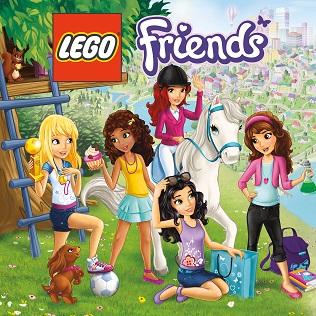Reception
| | This section is empty. You can help by adding to it. (April 2015) |
Outime, subtitled "a role playing game of alternate times", is a role-playing game published by Valhalla Simulation Games in 1983. [1]
Outime is a time-travel system with adventures on alternate Earths. [2] The rules cover skills, combat, psionics, equipment, and a sample miniscenario. [2]
Outime was designed by Marc W. D. Tyrrell, and published by Valhalla Simulation Games in 1983 as a 16-page book with an outer folder. [2]
| | This section is empty. You can help by adding to it. (April 2015) |

A player character is a fictional character in a video game or tabletop role-playing game whose actions are controlled by a player rather than the rules of the game. The characters that are not controlled by a player are called non-player characters (NPCs). The actions of non-player characters are typically handled by the game itself in video games, or according to rules followed by a gamemaster refereeing tabletop role-playing games. The player character functions as a fictional, alternate body for the player controlling the character.

A play-by-mail game is a game played through postal mail, email or other digital media. Correspondence chess and Go were among the first PBM games. Diplomacy has been played by mail since 1963, introducing a multi-player aspect to PBM games. Flying Buffalo Inc. pioneered the first commercially available PBM game in 1970. A small number of PBM companies followed in the 1970s, with an explosion of hundreds of startup PBM companies in the 1980s at the peak of PBM gaming popularity, many of them small hobby companies—more than 90 percent of which eventually folded. A number of independent PBM magazines also started in the 1980s, including The Nuts & Bolts of PBM, Gaming Universal, Paper Mayhem and Flagship. These magazines eventually went out of print, replaced in the 21st century by the online PBM journal Suspense and Decision.

Steve Jackson Games (SJGames) is a game company, founded in 1980 by Steve Jackson, that creates and publishes role-playing, board, and card games, and the gaming magazine Pyramid.

Avalon Hill Games Inc. is a game company that publishes wargames and strategic board games. It has also published miniature wargaming rules, role-playing games and sports simulations. It is a subsidiary of Hasbro, and operates under the company's "Hasbro Gaming" division.
Strategic Simulations, Inc. (SSI) was a video game developer and publisher with over 100 titles to its credit from its founding in 1979 to its dissolution in 1994. The company was especially noted for its numerous wargames, its official computer game adaptations of Dungeons & Dragons, and for the groundbreaking Panzer General series.
Simulation video games are a diverse super-category of video games, generally designed to closely simulate real world activities. A simulation game attempts to copy various activities from real life in the form of a game for various purposes such as training, analysis, prediction, or entertainment. Usually there are no strictly defined goals in the game, and the player is allowed to control a character or environment freely. Well-known examples are war games, business games, and role play simulation. From three basic types of strategic, planning, and learning exercises: games, simulations, and case studies, a number of hybrids may be considered, including simulation games that are used as case studies. Comparisons of the merits of simulation games versus other teaching techniques have been carried out by many researchers and a number of comprehensive reviews have been published.

A city-building game, or town-building game, is a genre of simulation video game where players act as the overall planner and leader of a city or town, looking down on it from above, and being responsible for its growth and management strategy. Players choose building placement and city management features such as salaries and work priorities, and the city develops accordingly.

Temple of Apshai is a dungeon crawl role-playing video game developed and published by Automated Simulations in 1979. Originating on the TRS-80 and Commodore PET, it was followed by several updated versions for other computers between 1980 and 1986.
Valhalla is an afterlife "hall of the slain" in Norse mythology.
1979 saw many sequels and prequels in video games, such as Space Invaders Part II and Super Speed Race, along with new titles such as Asteroids, Football, Galaxian, Head On, Heiankyo Alien, Monaco GP, Sheriff and Warrior. For the second year in a row, the highest-grossing video game was Taito's arcade game Space Invaders and the best-selling home system was the Atari Video Computer System.

En Garde! is a hybrid role-playing and tactical dueling game published by Game Designers' Workshop (GDW) in 1975 that simulates the swashbuckling world of the Three Musketeers and Cyrano de Bergerac in 17th century Paris.

The Arab-Israeli Wars, subtitled "Tank Battles in the Mideast 1956–73", is a board wargame published by Avalon Hill in 1977 that simulates various battles during the Suez Crisis, Six-Day War and Yom Kippur War.
Lee Gold is a member of California science fiction fandom and a writer and editor in the role-playing game and filk music communities.
In video games, an open world is a virtual world in which the player can approach objectives freely, as opposed to a world with more linear and structured gameplay. Notable games in this category include The Legend of Zelda (1986), Grand Theft Auto III (2001) and Minecraft (2011).

Assassin's Creed is an open-world, action-adventure, and stealth game franchise published by Ubisoft and developed mainly by its studio Ubisoft Montreal using the game engine Anvil and its more advanced derivatives. Created by Patrice Désilets, Jade Raymond, and Corey May, the Assassin's Creed video game series depicts a fictional millennia-old struggle between the Order of Assassins, who fight for peace and free will, and the Knights Templar, who desire peace through order and control. The series features historical fiction, science fiction, and fictional characters intertwined with real-world historical events and historical figures. In most games, players control a historical Assassin while also playing as an Assassin Initiate or someone caught in the Assassin–Templar conflict in the present-day framing story. Considered a spiritual successor to the Prince of Persia series, Assassin's Creed took inspiration from the novel Alamut by the Slovenian writer Vladimir Bartol, based on the historical Hashashin sect of the medieval Middle East.

Olympic Decathlon is a sports video game written by Timothy W. Smith for the TRS-80 and published in 1980 by Microsoft. In the game, the player competes in ten track and field events. The gold medalist for decathlon in the Montreal 1976 Summer Olympics, Caitlyn Jenner, is a character. It was ported to the Apple II in 1981. The 1982 version for the IBM PC was renamed Microsoft Decathlon.
Reacting games are educational role-playing games set in the past, with a focus on student debates about great texts.

Valhalla Knights 3 is a role-playing video game for the PlayStation Vita published by Marvelous AQL. It is the sequel to Valhalla Knights 2 and is the fourth game in the Valhalla Knights video game series. The game was originally planned to be released in Japan on January 31, 2013, but was delayed, and eventually was released on May 23, 2013. XSEED Games published the game in North America on October 15, 2013, and Europe on October 23, 2013. An enhanced version of the game titled Valhalla Knights 3 Gold was released in Japan on February 27, 2014; however, XSEED Games announced that they have no plans to release Gold in other regions.

Lego Friends is a 2013 Lego-themed social simulation game developed by TT Games and Hellbent Games and published by Warner Bros. Interactive Entertainment. In it, the player assists the residents of Heartlake City by completing different activities, developing their friendship with other characters and unlocking items as a result. The game is based on the Lego toy line of the same name. Lego Friends was criticized for its repetitive gameplay, loading times, and underutilization of minigames, but was complimented for its accessibility.

Assassin's Creed Valhalla is a 2020 action role-playing video game developed by Ubisoft Montreal and published by Ubisoft. It is the twelfth major installment in the Assassin's Creed series, and the successor to 2018's Assassin's Creed Odyssey. Principally set in the years 872–878 AD, the game recounts a fictional story during the Viking expansions into the British Isles. Players control Eivor Varinsdottir, a Viking raider who, while attempting to establish a new Viking clan in England, becomes embroiled in the centuries-old conflict between the Assassin Brotherhood, who fight for peace and liberty, and the Templar Order, who desire peace through control. The game also includes a framing story, set in the 21st century, which follows Layla Hassan, an Assassin who relives Eivor's memories so as to find a way to save the Earth from destruction.